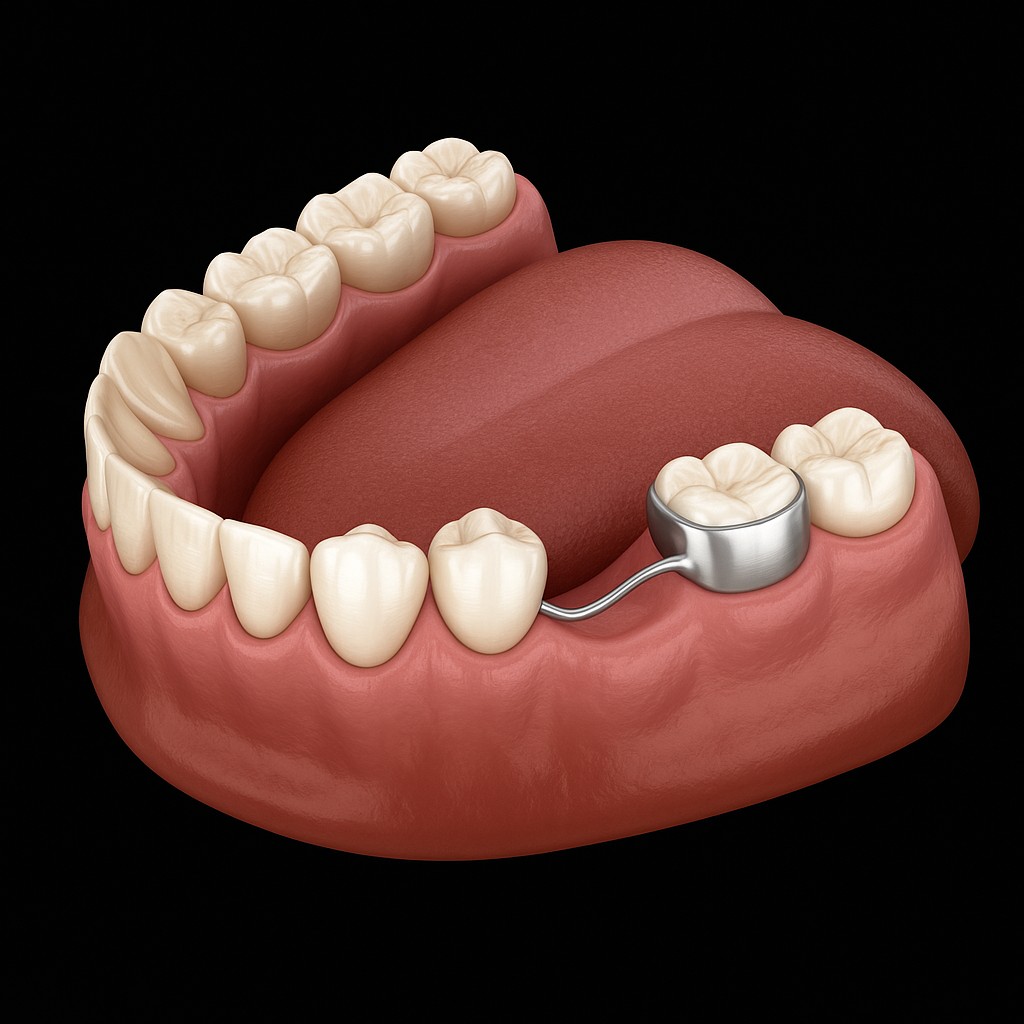Cracked Tooth Syndrome
Cracked Tooth Syndrome is the dental term used to describe tooth cracks that are causing pain, which is often extremely difficult to localise and treat. Treatment to reduce the risk of a tooth reaching this stage is recommended.
Cracks can be categorised into the following:
Craze Lines
small hairline cracks in the enamel which are generally painless.
Fractured cusp
a corner part of the tooth might break away, which generally causes discomfort when the tongue rubs on this area. These generally only cause minor sensitivity, however major cuspal fractures may involve the pulp, resulting in a tooth ache.
Cracked tooth
a crack extending from the enamel all the way down to the root (but not extending past). If not treated, this could result in tooth loss or a root canal.
Complex Fracture
same as above, however this involves the pulp (nerve) and generally causes a toothache.
Split tooth
a complex fracture that has now divided the crown (top) of the tooth into pieces. The only treatment is tooth extraction.
Vertical Root Fracture (VRF)
a complex fracture that has divided the roots. The only treatment is tooth extraction.

Common Causes
Grinding or Clenching
The most common cause of a cracked tooth is parafunction or Bruxism. Excessive forces when you grind or clench your teeth may result in your tooth cracking.
Large Fillings
It is not uncommon to see dental work causing cracked teeth. Large fillings weaken the tooth as the walls of the tooth are thinner and hence more susceptible to cracking.
Missing Teeth
When you are missing several teeth, your other teeth will inevitably have larger bite forces on them. This may result in your teeth cracking.
Trauma
Accidents, knocks on your teeth or sport injuries can result in direct trauma to a tooth, often causing fractures or cracking.
Hard Foods
Accidentally chewing on hard foods (eg. nuts, ice, hard candies and even pork crackling) results in excessive pressures on your teeth.
Symptoms
Pain
The most notable symptom of a cracked tooth is a sharp or throbbing pain that can sometimes radiate to the jaw, neck or ear.
Pain when chewing
Sharp or dull pain can be experienced if the sensitive tooth is related to a crack or fracture
Sensitivity
Exposed inner parts of the tooth due to the crack or fracture may result in temperature sensitivity
Swelling and inflammation of the gums
The gums might be sore, and can often feel like a gum infection.
Movement
In some cases, if the crack is major, your may feel movement of the cracked part of the tooth.


Treatment Options
Bonding or direct restorations
Uncomplicated fractures or cracks may be “filled” with composite resin.
Dental Crowns
For deeper cracks, the recommend option is to crown the tooth. A crown or cap is an indirect restoration (lab-made) that has higher compressive material strength, thus reducing the risk of a tooth splitting.
Root Canal and Crowns
Cracks which have extended into the nerve of the tooth will require root canal treatment to prevent infection of the tooth. A crown is placed after the root canal is completed to again reduce the risk of the crack progressing.
Tooth extraction
Severe cracks cannot be saved and the tooth will often require removal, followed by a dental bridge, implant or denture to restore the missing tooth.
Occlusal Splint
Grinding guards are often prescribed as an adjunct treatment to help manage cracks in your other teeth
Contact Dental at Keys for cracked teeth treatment.
Dental Services
Full Mouth Dental Implants
Implants
Invisalign
Clear Aligners
Cosmetic Dentist
Veneers
Sleep Dentistry
Teeth Whitening
Wisdom Tooth
Orthodontics
Jaw Expansion
Tooth Extraction
Dental Crown
Dental Bridge
Root Canal Treatment
General Dentistry
Gum Disease Treatment
Tooth Filling
Teeth Cleaning
Dentures
Sleep Apnoea
TMJ
Occlusal Splint
Mouth Guard
Family Dental
Kids Dental
Silver Diamine Fluoride
Fissure Sealants
Frequently Asked Questions

Does a cracked tooth hurt?
Pain is not always a true indicator of problems in your mouth. Cracked teeth can hurt but not always and sometimes minor things can hurt more than major problems!
Should I get treatment if there is no pain?
It’s entirely up to you and your philosophy- whether you want to be proactive or reactive with your dental problems. However, we would suggest a consult with us as soon as possible so you can weigh up your options. Cracked teeth never get better on their own and can often progress to tooth loss if not treated in a timely manner.
Do cracked teeth show up on X-rays?
Cracks rarely show up on x-rays and if they do, they are usually severe and may be more fractures than just cracks. However it is still important to take a base-line X-ray to check for decay, infections and any other hidden problems.
How much does it cost to fix a cracked tooth?
This entirely depends on the type of treatment you will receive (if any) for your cracked tooth. This may range from no treatment, to a Root Canal Treatment and a Dental Crown.












